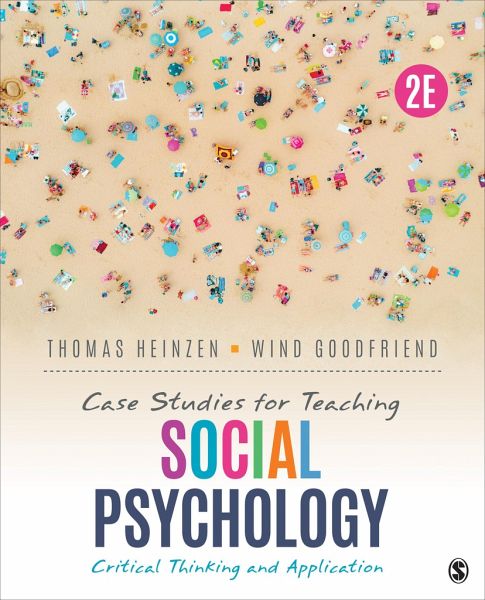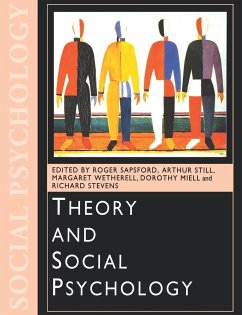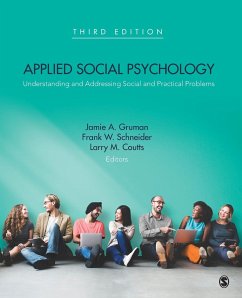
Case Studies for Teaching Social Psychology
Critical Thinking and Application
Versandkostenfrei!
Versandfertig in 1-2 Wochen
45,99 €
inkl. MwSt.

PAYBACK Punkte
23 °P sammeln!
What captivates learners and interests them in studying social psychology? In Case Studies for Teaching Social Psychology Tom Heinzen and Wind Goodfriend use brief, entertaining case stories to further enhance the historical context, evolution of, and challenges to major theories within the field. By employing a mix of unique, contemporary research and hallmark studies to illustrate classic concepts, Heinzen and Goodfriend steer students to explore new, meaningful ways of thinking about and connecting with foundational course concepts. In turn, this approach facilitates engaged conversation an...
What captivates learners and interests them in studying social psychology? In Case Studies for Teaching Social Psychology Tom Heinzen and Wind Goodfriend use brief, entertaining case stories to further enhance the historical context, evolution of, and challenges to major theories within the field. By employing a mix of unique, contemporary research and hallmark studies to illustrate classic concepts, Heinzen and Goodfriend steer students to explore new, meaningful ways of thinking about and connecting with foundational course concepts. In turn, this approach facilitates engaged conversation and deeper critical thinking both in and outside of the classroom.














